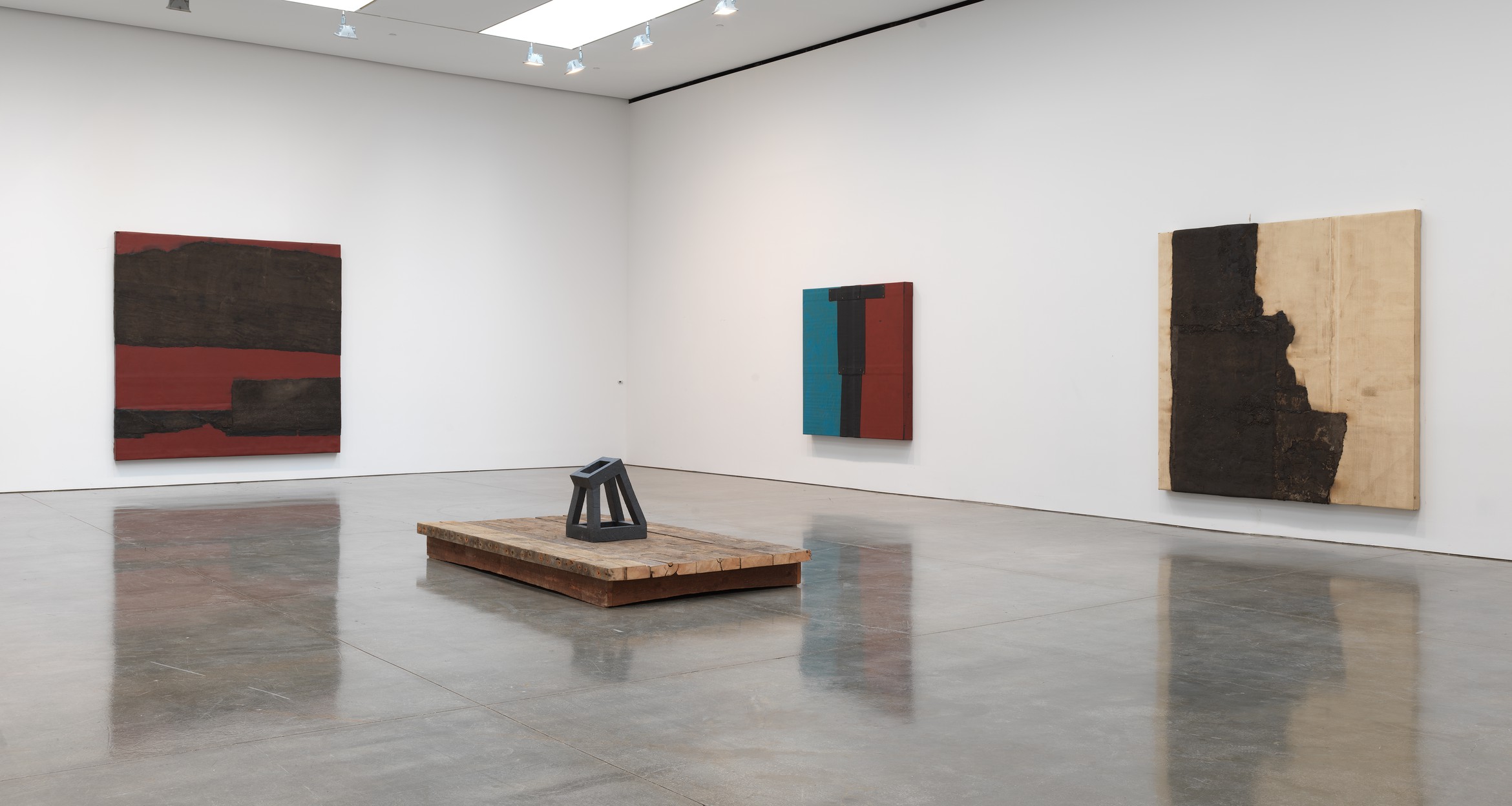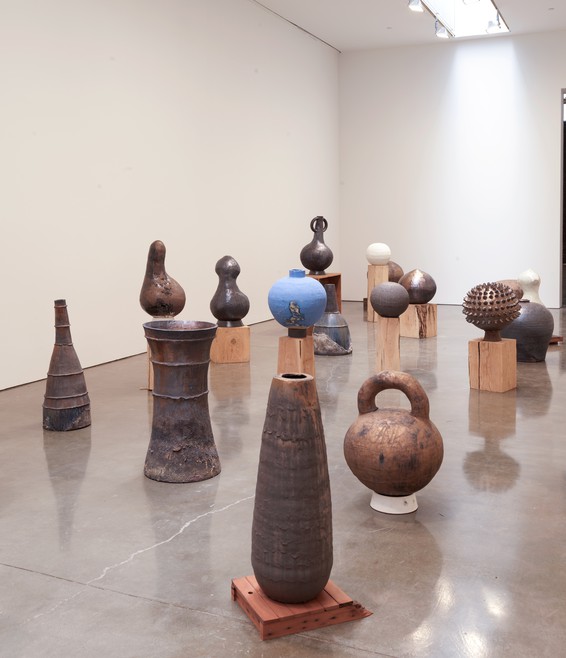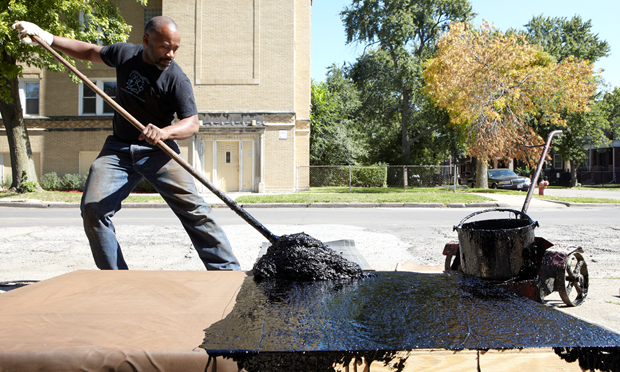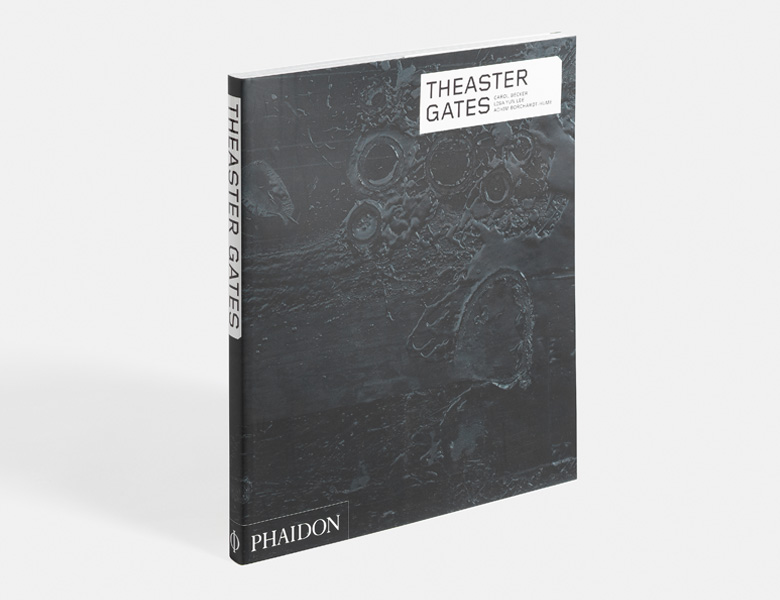
Theaster Gates makes a holy New York debut
The artist’s first solo show in NYC, draws together pottery, tar paintings and a pandemic-focused take on the religious space
Remember city breaks? Theaster Gates does. Speaking to Vogue on the opening of his first New York exhibition, the artist recalls being in Rome, “where you can walk into an empty church and there’s one person praying at a triptych by Caravaggio,” he says. “The empty vessel in some ways feels even more holy, because you have a one-to-one relationship with the architecture and with silence. What we’ve had to do during COVID is just rethink how the spaces that could contain many might still reverberate if there’s only a few.”

That simple, sparsely populated sense of sanctity is summed up well in Black Vessel, his show of work at Gagosian’s West 24th Street gallery in Manhattan until 19 December. The show features a series of the artist’s pots - Gates's undergraduate degree was in urban planning and ceramics, and describes vessels as something that “precede all other forms of making” in the exhibition’s notes. The exhibitions also features a series of tar paintings (in honour of Gates’ father, who was a roofer), perfect-bound copies of magazines from the Johnson Publishing Company, a mid-century black-interest media firm, and a single, vintage Leslie speaker, which amplifies a chord from a Hammond B2 organ, a keyboard closely associated with 20th-century soul and gospel.
The pandemic ensures that attendance will be appropriately sparse; the Gagosian insists visitors book in advance and practice social distancing, while Gates’ own religious instincts ensure Black Vessels feels wholly holy.

Indeed, our Gates monograph on Gates points to an early, American sacred space that influenced this artist: the Rothko Chapel in Houston, Texas. “As an intimate sanctuary available to people of every belief, the chapel was intended to be a gathering place ‘for people who are not just going to debate and discuss theological problems, but who are going to meet because they want to find contact with other people. They are searching for this brotherhood of humanity,’” writes Lisa Yun Lee in the book. “The idea that individuals, through their passion, social capital and actual capital might create a context that could transform our experience of paint on canvas into one of universal humanity is a utopian project that is on a scale to which Gates can relate.”
For the next few weeks, New York gallery goers will be able relate to those aims and ideals too. To get a thorough understanding of this important contemporary artist, get a copy of our Contemporary Artist Series book on Theaster Gates here.
